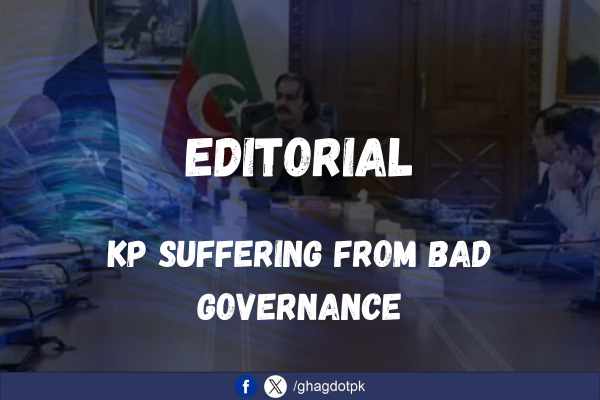It is concerning that Khyber Pakhtunkhwa’s administrative matters are deteriorating daily and that no one, even the Chief Minister, understands or recognizes the harmful consequences of poor governance. Arbab Shahzad, a senior leader of the ruling party and former adviser to Imran Khan, stated in a recent interview that there is no such thing as a government in Khyber Pakhtunkhwa and that the bureaucracy is working considerably slower than before. According to him, unrest in tribal communities has not only escalated to alarming levels. Rather, the people there are dealing with significant issues that the government is not paying attention to, and if this indifference continues, things will spiral out of control. Terrorism has escalated dramatically and the force personnel along with the general public are being attacked regularly. However, Amanullah Haqqani, the leader of the JUI, Hussain Shah Yousafzai, the general secretary of the ANP in the province, and Ahmad Kandi, a member of the provincial assembly, have expressed similar opinions, claiming that the provincial government’s lack of seriousness and negligence is to blame for the fact that it has yet to call a meeting of the Council of Common Interests, further jeopardizing the province’s economic affairs rather than advancing them. The three leaders claim that Khyber Pakhtunkhwa has a thriving corruption market, with the Chief Minister’s support, and that appointments and transfers involving millions of rupees are done in public.
In addition to the disagreements within his cabinet, Khyber Pakhtunkhwa Governor Faisal Karim Kundi stated that the Chief Minister is being accused of the worst cases of nepotism and corruption, yet he is oblivious to the issues and challenges faced by the province.
The harsh truth is that the people of the province are compelled to pay for the damaging effects of the continuous political unrest between the federal and provincial governments. However, the province as a whole has been severely affected by the current wave of terrorism, particularly in the tribal and southern areas, which the provincial administration is supposed to oversee both politically and administratively but is reportedly unable to do.






